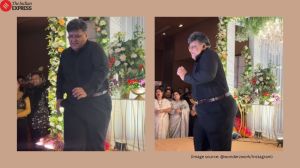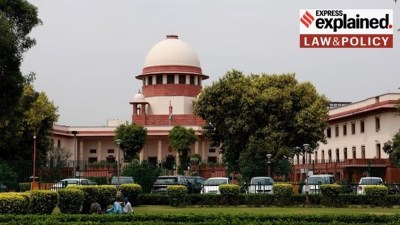A Delhi court has discharged a man accused in his father’s murder case as it found no prima facie evidence against him, saying mere uncorroborated disclosure with motive were insufficient to frame charges.
Principal district and sessions judge Nisha Sahay Saxena said, “When nothing except a disclosure statement exists against an accused, without independent corroboration or supporting evidence, proceeding to trial becomes an exercise in futility and harassment.”

The court further observed that such cases fail to meet the threshold of ‘sufficient ground for presuming’ guilt required at the discharge stage.
The order, therefore, discharged one Luv Bhardwaj underlining that the “charge cannot be framed on motive and bare disclosure alone without additional corroborative evidence”.
It continued, “Except for mere suspicion against the accused Luv Bhardwaj, based on the alleged motive, there is no prima facie evidence against him.”
One Ramesh Bhardwaj was murdered in January when he allegedly went to visit his former employee and friend, Jitendra.
The co-accused Jitendra’s son, Abhishek, made a disclosure statement alleging that they conspired to murder Luv’s father, along with him, at the Red Light of Harish Chander Hospital in the national capital.
Story continues below this ad
He also alleged that Luv offered Jitender Rs 10 lakh to murder his father and also paid Rs 40,000 in advance.
Advoacte Pradeep Khatri, who was representing Luv, argued “no person can be compelled to face trial solely on the basis of motive or a bare disclosure statement without independent corroboration”.
Additional public prosecutor Girish Giri, opposing the plea, argued that Luv had conspired with the co-accused to kill his father and the “motive of property dispute, financial consideration and pre-existing relationship between the accused persons are strongly supported by witness statements and documentary evidence”.
The court pointed out that the disclosure statements could be obtained through questionable means or could be fabricated.
Story continues below this ad
“Without independent verification, proceeding to trial, based solely on such statements, violates the principles of natural justice,” the court held.
The judge also highlighted that “motive + uncorroborated disclosure about conspiracy location” was “insufficient for framing charges”.
The order noted that charging the accused with murder based solely on motive would violate fundamental principles of criminal justice – the presumption of innocence, protection against wrongful prosecution and the requirement of substantive evidence before subjecting someone to trial.
The court found that the disclosure statement given by co-accused Abhishek against Luv was not an admissible piece of evidence as it did not lead to any discovery.
Story continues below this ad
The other accused, Jitendra and his son, Abhishek, were charged with the murder of the deceased on November 18.
The deceased allegedly had a property dispute with his son and was living with his daughter, Ekta Arora and her two children for the last one year.
While delivering the verdict, the court reiterated the long-standing principle- “It is better that ten guilty persons escape than one innocent suffer.”

































